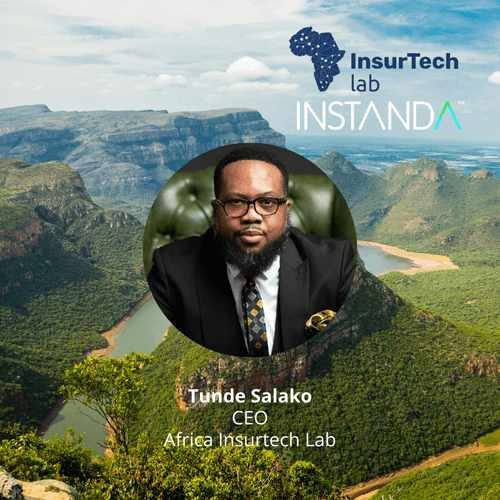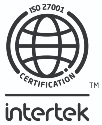Personalised insurance in African markets: How to leverage tech for better penetration

Africa is currently home to about a quarter of the world’s population, or approximately 1.8 billion people, with the African insurance industry projected to reach USD 123.8 billion by 2028, according to Mordor Intelligence.
Despite this, the insurance penetration rate is comparatively low, standing at approximately 2%. This suggests that many people’s insurance needs on the continent are not being served.
So, how can insurers capitalise on the unmet needs of African businesses and consumers, and what role can technology play in increasing penetration rates?
Featuring insights from Tunde Salako, CEO of Africa Insurtech Lab and INSTANDA’s Henry Willis, this article examines the current needs of African insurance consumers. Crucially, it discusses how leveraging the burgeoning power of mobile platforms and no-code platforms like INSTANDA could be the solution.
Shifting the Attitudes of Consumers
As Tunde observes, “There are a myriad of factors affecting the African insurance penetration rate.” Primarily, these include:
- Consumer trust deficit in insurers
- Lack of an insurance culture
- Low awareness of the benefits of insurance
- Product mismatch to consumer need
- Diverse attitudes by demographics (e.g. generational regard for insurance)
- Low levels of accessibility and affordability
- Cost of distribution to the insurer
However, perhaps the biggest obstacles to the African insurance market are consumer perception, behaviour and the products themselves. As Tunde explains, “Generally speaking, predominantly people do not live in environments that promote an insurance culture.”
“Africa is a very large continent with multiple countries and different regions. The behavioural economics of the customer are not homogenous,” adds Tunde. In many places, he shares, “Insurance is seen as a product for wealthier people,” when in fact he continues, “it is those with lower incomes who would benefit more from insurance because they are more exposed to risk.”
The picture is beginning to change, though. “This is largely owed to advances in technology,” says Tunde. He continues, “Post-Covid, there has been a real intentionality of the role that technology can play in insurers being able to reach new customers.” Over the past three years, increasing access to technology and digital platforms (such as WhatsApp) has played a significant part in reaching underserved markets and educating consumers about the power of insurance. “This,” Tunde explains, “has led to a shift in mindset to a consumer narrative of - how can insurance help to protect my family and wealth?”
Furthermore, platforms like INSTANDA allow insurers to create more affordable and flexible insurance products tailored to local needs, ensuring they can tap into those underserved markets.
Thus, by diversifying their product offers and making their services more accessible with mobile technology, insurers can take the example of online banks and make African people more receptive to insurance.
Reaching the underserved with technology
Mobile has essentially made insurance products much more accessible, affordable and convenient. This creates opportunities for emerging markets in the 'Big Five' (Nigeria, Kenya, South Africa, Egypt, and Ghana).
Some industries in the region have already leveraged tech to reach underserved consumers. For instance, M-Pesa is currently one of Africa's most successful mobile money services, used by millions across the continent.
Pay-as-you-use insurance and microinsurance are also burgeoning areas of development — the former for auto insurance and the latter for agricultural insurance. Tunde remarks, “Many people are now able to make purchases through their mobile phones at micro-affordable premiums, as opposed to what used to happen 10-15 years ago.”
Property and Casualty Insurance
Mobile technology entering Africa has created a new digital economy, which benefits the Property and Casualty insurance sector. Climate change and natural disasters have also incentivised African people and businesses to seek cover.
For example, agri-tech is an emerging market of interest. Many small agricultural businesses are using technology to optimise their yield. If farmers are now spending money to increase germination and cultivation, then they’re more likely to invest in insurance: protecting their precious crops against potential losses arising from climate change. Insurers looking to enter this lucrative space, therefore, have an opportunity to partner with agri-tech companies to sell new technology and tailored insurance simultaneously.
Growth within the Property and Casualty African insurance sector is going to be huge, particularly in emerging markets fuelled by rapid urbanisation and infrastructure development. As Tunde states: “This is a huge space where we see technology coming to aid and abet again. That's going to create the opportunity for what we call: ‘agile underwriting’.”
Meanwhile, Africa's increasing population means more young people are entering the market and are more inclined to find insurance products via digital platforms. Mandatory motor insurance across African regions is already incentivising drivers to seek tailored insurance products.
Health Insurance
Before jumping into technology’s impact on the Life and Health space in Africa, it’s helpful to reflect on how most people access and pay for their healthcare. As Tunde elaborates, “In most African countries, healthcare is an out-of-pocket payment rather than being paid for by insurance.” Health insurance penetration rates are very low. It’s an inherent and complicated picture, but technology offers a huge amount of promise.
There’s a big opportunity for insurers to create products targeted at skilled people who are at the point of making a steady day-to-day income for themselves, but who may not want to pay an annual premium. This, Tunde shares, “Is tough for some insurers whose legacy systems and operating models focus on annual subscription.”
New technology, however, is enabling insurers to be far more flexible. It is helping consumers access hyper-personalised health insurance products targeting specific health needs and chronic conditions. Technology is enabling consumers to make micro-contributions to get the medical cover that they need. This is proving to be helpful in bringing cover to underserved rural demographics.
Meanwhile, rapid urbanisation has also spurred a demand for more health insurance in cities and suburban areas. “Both health and P&C insurance offer huge growth potential,” claims Tunde, “and the first-mover advantage will be the insurers that are using technology to catalyse that industry.”
Accelerating Growth with No-Code
Talking passionately about the opportunities that INSTANDA affords African insurers, Tunde, says “One of the things that excites us most about the INSTANDA platform is its capability to rapidly bring new products to market. This agility is a gamechanger.”
There’s a mounting technical debt across the African continent and many insurers are grappling with complex legacy systems; both of which are major roadblocks to innovation. As INSTANDA’s Henry Willis explains:
“INSTANDA tackles both challenges head on. The no-code platform is ripe for the African insurance market. Designed for business user level change, insurers augment data in real time, design questions, manage rating across products and geographies, and easily build dynamic forms; without the need for in-house development resources.”
Sharing his enthusiasm for INSTANDA, Tunde adds, “INSTANDA empowers insurers to rapidly design and launch products across multiple territories. Products can be easily tailored to any number of local jurisdictions, all from within the platform.”
“Essentially,” Tunde shares, “this all but eliminates the complex coding of products and enables insurers to respond to evolving consumer and market demands with incredible agility and speed.”
The use-cases for INSTANDA on the African continent are boundless. The platform’s powerful API capabilities also mean that it is perfectly positioned to enable insurers to leverage data for insight.
To learn more about the INSTANDA’s platform capabilities and to find out why insurers, MGAs and brokers across the world choose us as their technology partner, please book a demo.





